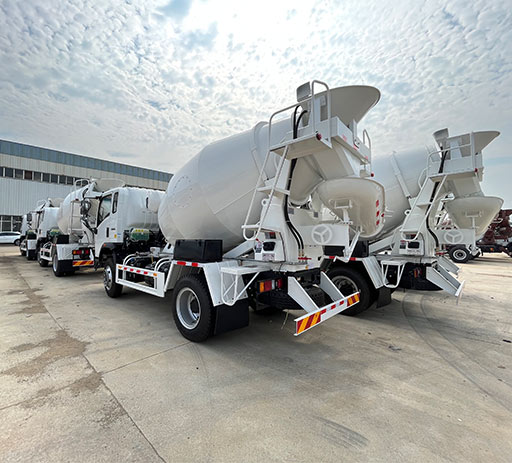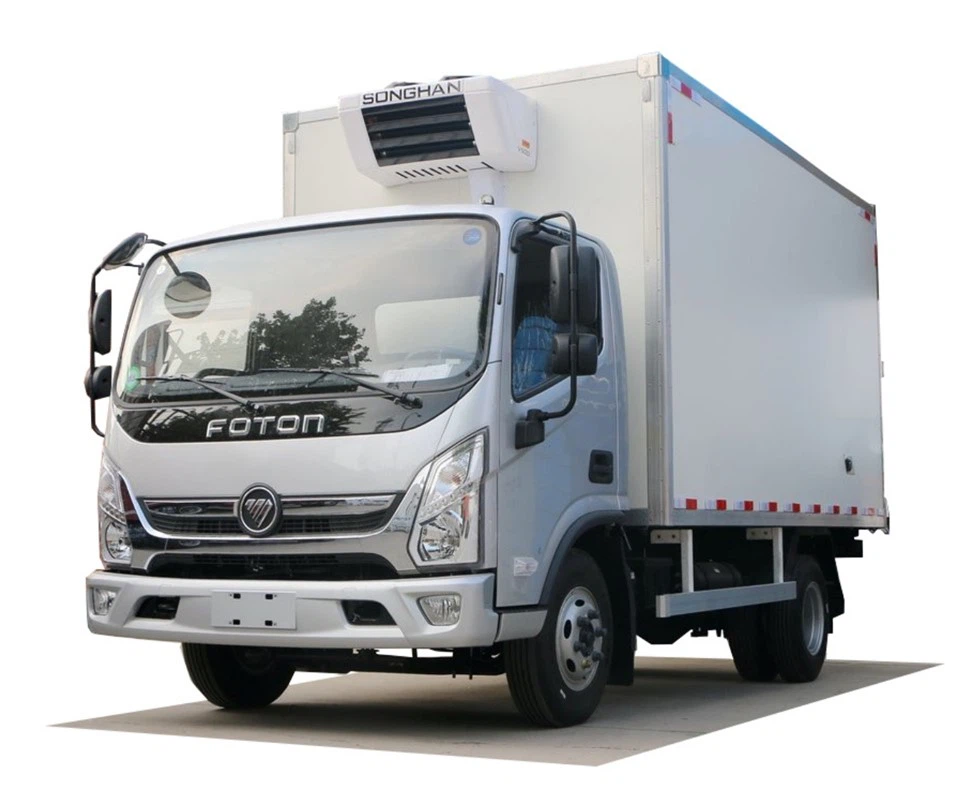Everything You Need to Know About Truck Trash Containers

Introduction
In today’s fast-paced world, managing waste efficiently is crucial for businesses and municipalities alike. One of the most effective solutions for handling large amounts of trash is the truck trash container. These containers are designed to facilitate easy collection and disposal of waste, offering numerous benefits for residential, commercial, and industrial settings. In this article, we will explore everything you need to know about truck trash containers, including their types, uses, features, and best practices for effective waste management.
What is a Truck Trash Container?
A truck trash container is a large bin designed to hold waste materials until it is collected by a garbage truck. These containers come in various sizes and designs to accommodate different waste management needs. Truck trash containers are typically made of durable materials like steel or plastic, ensuring they can withstand the rigors of transportation and storage.
Why Use a Truck Trash Container?
- Space Efficiency: Their large capacity makes them suitable for various waste types.
- Easy Transportation: Designed for easy loading and unloading from trucks.
- Durability: Built to endure harsh environments and heavy use.
- Cost-Effective: Helps reduce costs by minimizing trips needed for waste disposal.

Types of Truck Trash Containers
Roll-Off Containers
Roll-off containers are large, open-top bins that a truck can roll off and on. They are ideal for construction sites, large cleanouts, and other projects generating significant waste. Available sizes typically range from 10 to 40 yards.
Features of Roll-Off Containers:
- Open-Top Design: Easily load debris, making them perfect for bulky items.
- Variety of Sizes: Choose based on project size and waste type.
- Durable Materials: Built to handle heavy loads and tough conditions.
Front-Load Containers
Front-load containers are usually smaller and have a lid, making them suitable for routine waste collection in commercial settings. They are lifted from the front by specialized garbage trucks for easy disposal.
Features of Front-Load Containers:
- Lockable Lids: Helps prevent pests and odors.
- Compact Design: Ideal for tight spaces, like city streets.
- Regular Collection: Convenient for businesses requiring frequent pickups.
Rear-Load Containers
Rear-load containers have an opening at the back, allowing garbage trucks to collect waste from the rear. They are commonly used in residential areas for routine trash collection.
Features of Rear-Load Containers:
- User-Friendly: Designed for easy access to waste by users.
- Community-Friendly: Often placed in neighborhoods for residential waste.
- Durable Construction: Ensures longevity and effective use.
Choosing the Right Truck Trash Container

Selecting the correct truck trash container is vital for efficient waste management. Here are some factors to consider:
1. Size
Consider the volume of waste you expect to generate. Containers typically range from 10 cubic yards to 40 cubic yards. For example, a home renovation may require a 20-yard roll-off container, while a large construction project may need a 40-yard container.
2. Type of Waste
Different containers are tailored for specific types of waste. Ensure you choose a container compatible with the materials you’ll be disposing of, whether it’s construction debris, household trash, or recyclables.
3. Frequency of Collection
Determine how often you need waste picked up. For frequent waste needs, consider front-load containers that are designed for regular collection.
4. Local Regulations
Check your local regulations regarding waste disposal. Some areas may have specific requirements for container sizes, types, and how waste should be sorted.
Best Practices for Using Truck Trash Containers
1. Proper Loading Techniques
To maximize space in your trash container, use proper loading techniques. Large items should be broken down, and heavier materials should be placed at the bottom. Additionally, avoid overfilling the container, as this can cause safety issues during transport.
2. Regular Maintenance
Inspect your containers regularly for damages such as dents or rust. Keeping containers clean will also help control odors and attract fewer pests.
3. Secure Materials
For safety and environmental reasons, ensure that all materials are securely contained within the trash container. Use tarps or nets to cover contents if required by regulations, especially during transport.
4. Know Your Local Guidelines
Familiarize yourself with your local waste management guidelines to ensure compliance. This helps avoid fines and promotes responsible waste disposal.
Cost of Truck Trash Containers
The cost of renting or purchasing truck trash containers can vary widely based on several factors, including size, type, and your location. Here’s a general overview of the costs:
| Container Size | Average Rental Price Per Week | Average Purchase Price |
|---|---|---|
| 10 Yard | $250 | $2,000 |
| 20 Yard | $350 | $3,500 |
| 30 Yard | $450 | $4,500 |
| 40 Yard | $550 | $5,500 |
Environmental Impact of Truck Trash Containers
Using truck trash containers plays an essential role in promoting waste management sustainability. Here are a few positive impacts:
1. Waste Reduction
Efficient waste collection leads to reduced litter and improper disposal, helping keep communities cleaner.
2. Recycling Initiatives
Many waste management services offer separate containers for recyclables, promoting recycling initiatives and reducing landfill waste.
3. Resource Recovery

Truck trash containers facilitate the collection of waste that can be processed for resource recovery, allowing materials like metal, glass, and plastics to be repurposed.
Examples of Truck Trash Container Applications
Residential Use
During home renovations or large cleanouts, homeowners can rent a truck trash container, typically a 10 to 20-yard option, to efficiently handle waste.
Construction Sites
Construction projects generate significant waste, making roll-off containers essential. A 30 to 40-yard container can accommodate the debris from a single project.
Commercial Settings
Businesses can utilize front-load containers for regular trash pickups. These containers should be maintained and serviced based on the frequency of waste production.
Frequently Asked Questions (FAQ)
1. What can I put in a truck trash container?
Truck trash containers can hold various waste, including household items, construction debris, and yard waste. Check with your local provider for specific restrictions.
2. How long can I keep a rental truck trash container?
Most rental agreements allow for usage between five to seven days, but you can often negotiate longer rental periods if needed.
3. What if I overfill the container?
Overfilling a container can lead to additional fees or safety issues during transport. Always adhere to the fill line and load materials appropriately.
4. Are there any items I cannot put in a truck trash container?
Yes, hazardous materials, such as chemicals, batteries, and certain electronics, cannot be placed in truck trash containers. Always confirm with your provider.
5. How are truck trash containers emptied and transported?
Garbage trucks equipped with mechanical arms lift and empty containers at collection sites. The trash is then taken to landfills, recycling centers, or other waste processing facilities.
6. Can I lease a truck trash container long-term?
Many waste management companies offer long-term leasing options for businesses needing continuous waste disposal solutions. Discuss your needs with a provider to find the best option.
